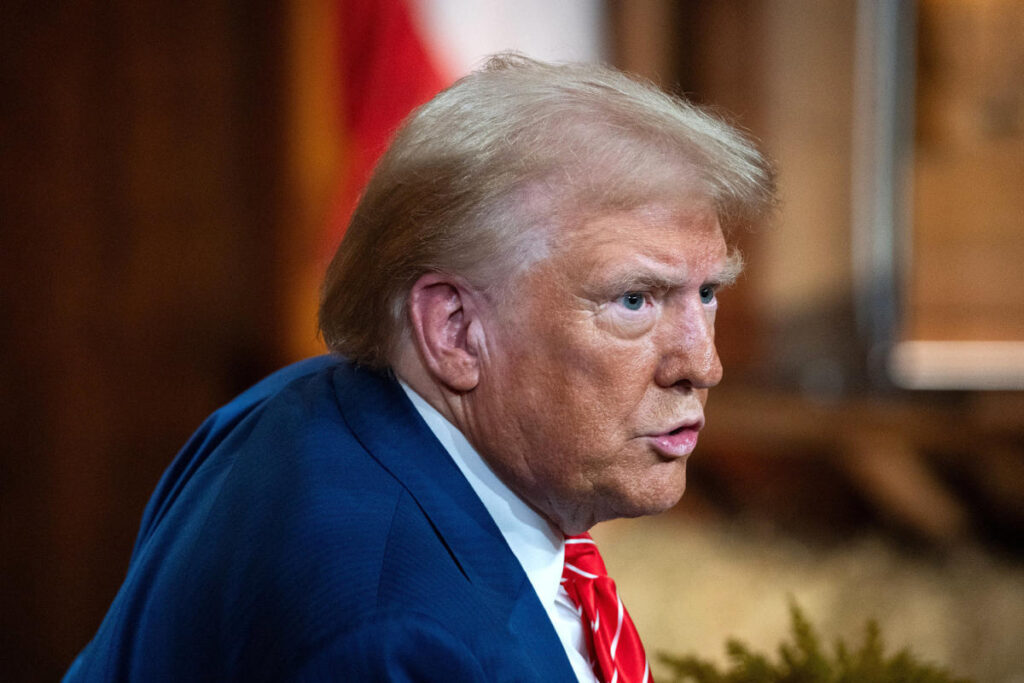Former President Donald Trump recently intensified his rhetoric about the Democratic Party during a town hall event in Cumming, Georgia, which aired on Fox News. In this event, Trump reaffirmed comments he had made earlier, where he labeled Democrats as the “enemy from within.” He characterized prominent Democratic figures like California Representative Adam Schiff as “lunatics” and asserted that they pose a greater risk to America than foreign adversaries such as Russia and China. Trump emphasized this point, distinguishing between external and internal threats, declaring the latter to be even more dangerous. He revealed his belief that if unrest were to occur on Election Day, the military might need to be involved to maintain order against what he termed “radical left lunatics.”
During this session, Trump escalated his attacks, branding Democrats as “evil,” “dangerous,” and associating them with Marxism, communism, and fascism, frequently critiquing individuals like House Speaker Nancy Pelosi. He claimed that while a capable president can deal with international adversaries, the more troubling challenges come from within, hinting at the perceived instability of Democratic leadership. His comments were not only inflammatory but also echoed a wider narrative that positions Democrats as existential threats to national security and democracy itself.
In the wake of Trump’s remarks, Vice President Kamala Harris seized the opportunity to respond, framing Trump’s rhetoric as dangerous and indicative of his unstable mental state. At a rally in Pennsylvania, she warned that a potential second Trump term would pose significant risks, labeling him as “increasingly unstable and unhinged.” Harris’s criticisms were part of a broader campaign strategy, illustrated through an advertisement entitled “Enemy Within,” emphasizing the threats posed by Trump’s demeanor and rhetoric concerning political opponents.
During the town hall, Trump was given the chance to clarify his earlier statements, particularly in light of criticisms from Harris. He dismissed the notion of being “unhinged” and framed his remarks as a reasonable perspective on internal political dynamics. Trump reiterated his accusations against Schiff, who had a prominent role in his impeachment trial, and he emphasized that the investigations into so-called “Russian interference” were baseless. He continued to paint Democrats as a major threat to the nation’s stability, reinforcing his narrative about the dangers of their political ambitions.
In response to Trump’s comments, a spokesperson for Schiff highlighted the potential implications of Trump’s words, condemning his suggestion to deploy the military against political foes. The spokesperson cautioned that Trump’s statements reflect authoritarian tendencies and advocated for defeating him in the upcoming elections to prevent what they described as dictatorial ambitions. Harris’s campaign and Pelosi’s representatives did not immediately provide comments, suggesting a strategic pause before responding to Trump’s vehement assertions on the political landscape.
The ongoing exchanges showcase the deepening polarizations within American politics, as both Trump and Democratic leaders frame each other as significant threats in their respective narratives. Trump’s characterization of Democrats, while vocally supported by his base, faces backlash from Democrats who argue that such rhetoric undermines democratic norms and stability. The dialogue leads to significant questions about the political climate leading up to the next elections, with both sides gearing up for heightened confrontations as they vie for the narrative on national security, governance, and authority.

